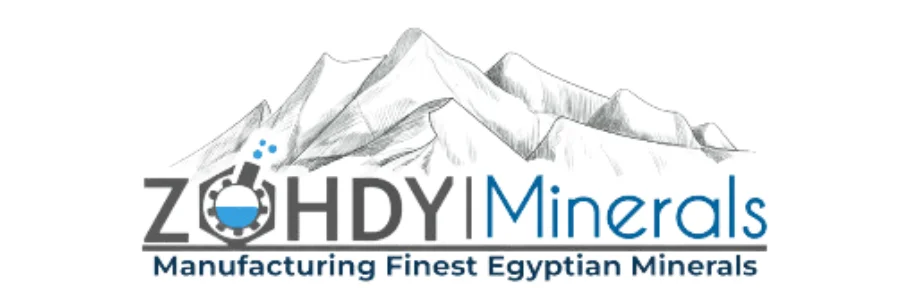Limestone for Soil Improvement in Saudi Arabia, Healthy soil is the cornerstone of sustainable agriculture. While farmers and agricultural experts are well-versed in advanced farming techniques, the land’s productive capacity hinges fundamentally on soil health.
One of the most pressing global challenges in agriculture is soil acidity, which drastically reduces crop productivity, hinders nutrient absorption, and weakens plant health. Over time, intensive farming practices, acid rain, and the use of certain fertilizers exacerbate soil acidity. To counter this, farmers worldwide resort to soil conditioners as essential tools to restore balance and ensure long-term fertility.
Among these conditioners, Natural Limestone (Calcium Carbonate) has proven to be highly effective, sustainable, and economical. Often known as Agricultural Lime, limestone has been used for centuries to neutralize acidic soil and enhance agricultural output.
Natural Limestone
Natural Limestone is a sedimentary rock primarily composed of Calcium Carbonate (), formed over millions of years through the accumulation of shells and coral reefs. When mechanically ground into fine particles suitable for agricultural use, it becomes an effective soil amendment in Saudi Arabia.
Its primary agricultural forms are:
- Ground Calcium Carbonate: Obtained by mechanically grinding the limestone. Its reaction speed depends on its degree of fineness.
- Fine Agricultural Lime (Powdered): More effective due to its rapid reaction with the soil.
The Role of Limestone in Soil Improvement
Soil conditioners are materials added to the soil to enhance its physical and chemical properties, which is precisely how limestone functions in soil improvement. Fertilizers, in contrast, provide nutrients directly to the plant.
Importance of Limestone:
- Treating Acidity: Soil acidity binds essential nutrients like nitrogen, phosphorus, and potassium, making them unavailable to plants. Excessive acidity can also increase the concentration of toxic aluminum and manganese.
- Nutrient Release: By adding limestone, acidity is neutralized, and the bound nutrients are freed up.
- Improving Structure and Water Retention: Calcium helps aggregate clay particles, which improves aeration and root penetration.
- Increasing Microbial Activity: Beneficial microorganisms thrive in neutral conditions, enhancing organic matter decomposition and the nutrient cycle.
Benefits of Using Limestone for Soil Improvement
The use of limestone contributes significantly to soil health by:
- Neutralizing Acidity: Raises the pH value and reduces toxicity.
- Improving Nutrient Availability: Especially for phosphorus and potassium.
- Enhancing Soil Structure and Aeration.
- Increasing Beneficial Microbial Activity.
- Low Cost and Wide Availability.
- Providing a Long-Term Effect.
If you are looking to obtain Limestone for soil improvement in Saudi Arabia, contact Zohdy Minerals Egypt, the best company for sourcing it.
Mechanism of Action
Limestone improves acidic soil by reacting with the hydrogen ions () responsible for acidity:
The results of this reaction are:
- Reduced Acidity and Elevated pH
- Release of Bound Nutrients
- Increased Cation Exchange Capacity (CEC) of the soil, thus improving nutrient retention.
- Enhanced Buffering Capacity, helping the soil resist future changes in acidity.
Available Types and Forms
- Ground Agricultural Lime: The most common form. Reaction speed depends on its fineness.
- Powdered and Pelletized Lime: Easier to apply and generates less dust, but is often more expensive.
- High-Calcium Lime vs. Dolomitic Lime: Dolomitic lime also contains magnesium (), which is beneficial for magnesium-deficient soils.
- Bulk Lime: Used for large areas and applied with specialized equipment.
Best Application Methods and Practices
- Soil Analysis: Crucial for accurately determining the required quantity.
- Dosage: Typically 2–4 tons/hectare for highly acidic soils, less for moderately acidic soils.
- Distribution: Spread on the soil surface and then incorporated (via plowing/tilling) to speed up the reaction.
- Timing: Best applied several months before planting.
- Frequency: Every 3–5 years, depending on conditions.
If you need to source Limestone for soil improvement in Saudi Arabia, you should contact Zohdy Minerals Egypt.
Comparison with Other Amendments
- Lime vs. Dolomite: Dolomite adds magnesium.
- Lime vs. Gypsum: Gypsum does not neutralize acidity, but it improves structure and adds calcium and sulfur.
- Lime vs. Chemical Fertilizers: Fertilizers may increase acidity over time, whereas lime treats the cause.
Challenges and Considerations
- Overuse: Can cause the pH to rise too high, leading to deficiencies in micronutrients like iron and zinc.
- Quality Variation: Effectiveness varies based on the limestone source and how finely it is ground.
- Logistical Costs: Transportation and large-volume application can be expensive.
- Time Lag: Requires time to react fully with the soil.
Sustainability and Environmental Impact
- Reduced Reliance on Chemical Inputs and minimized pollution.
- Safe and Suitable for both conventional and organic farming.
- Improves Soil Health and promotes Regenerative Agriculture.
- Helps address climate change by increasing soil resilience.
Market Trends
- Increasing Global Demand with the growth of sustainable and organic agriculture.
- Growing Adoption in emerging economies (India, Brazil, Africa).
- Rising fertilizer prices encourage its use to maximize nutrient utilization.
- In high-acidity regions, agricultural lime has become essential, not optional.
Natural limestone remains one of the most vital tools for improving soil health and boosting sustainable agricultural productivity. It not only treats acidity but also enhances soil structure, boosts microbial activity, and releases nutrients. Unlike expensive chemical solutions, it is readily available, low-cost, and environmentally friendly.
We have presented everything regarding the role of Limestone in soil improvement in Saudi Arabia. If you need to obtain Limestone for soil improvement in Saudi Arabia, you should contact Zohdy Minerals Egypt.






